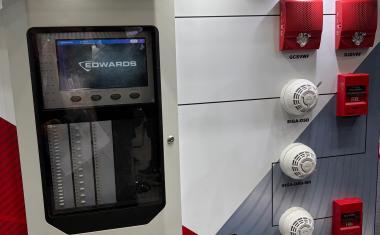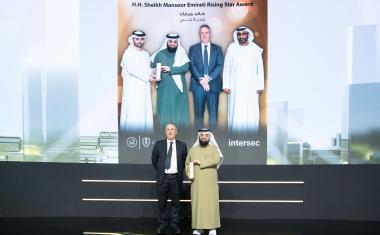Cassidian protects German Navy ships with the latest identification systems
Cassidian, the recently re-named defence and security pillar of EADS, protects German Navy ships with identification systems to avoid confrontations with unknown aircraft. With the...
Cassidian, the recently re-named defence and security pillar of EADS, protects German Navy ships with identification systems to avoid confrontations with unknown aircraft. With the equipping of the frigate "Niedersachsen" in Wilhelmshaven at the beginning of September, the programme to modernise the frigates of the "Brandenburg" (F123) and "Bremen" (F122) classes is now completed.
This means that Cassidian has now equipped all 12 frigates of the German Navy as well as the five K130 corvettes of the "Braunschweig" class and the ten fast patrol boats of the type S143 with the latest IFF (identification friend-or-foe) technology. Systems of the MSSR 2000 I type use state-of-the-art digital and encryption technology in line with the latest Mode S identification process in order to prevent erroneous attacks through fast recognition of aircraft.
"On account of the increasing complexity of combat situations and scenarios, both on the ground and in the air, identification is today an existential matter during all military operations," explains Bernd Wenzler, CEO of Cassidian Electronics. "Only fast and reliable identification of one's own and friendly forces can ensure that dangerous or even fatal incidents can be prevented."
IFF systems, also known as "secondary radars", enable precise data to be gathered about the origin, course, speed, etc. of individual aircraft by transmitting interrogation signals which are answered by so-called transponders on board friendly aircraft. In this way, IFF systems ensure that approaching aircraft can be reliably identified, thus reducing the risk of erroneous friendly fire. This data exchange is effected using encrypted signals which cannot be analyzed or jammed by hostile forces.
Secondary radars are however also used in civil air traffic control. Here, the MSSR 2000 I ensures the transmission of interrogation signals to all aircraft as well as the collection of the corresponding responses. Secondary radars thus guarantee a real-time overview of all aircraft in the sector being monitored, resulting in a significant improvement in air traffic control and enabling the air space to be used more efficiently.
Cassidian has already delivered IFF systems like this to various NATO countries for sea-based and ground-based applications. For example, the MSSR 2000 I interrogator also protects the French Mistral landing craft and Australia's amphibious ships. In total, Cassidian has contracts for about 250 systems of this type for 29 different countries.









